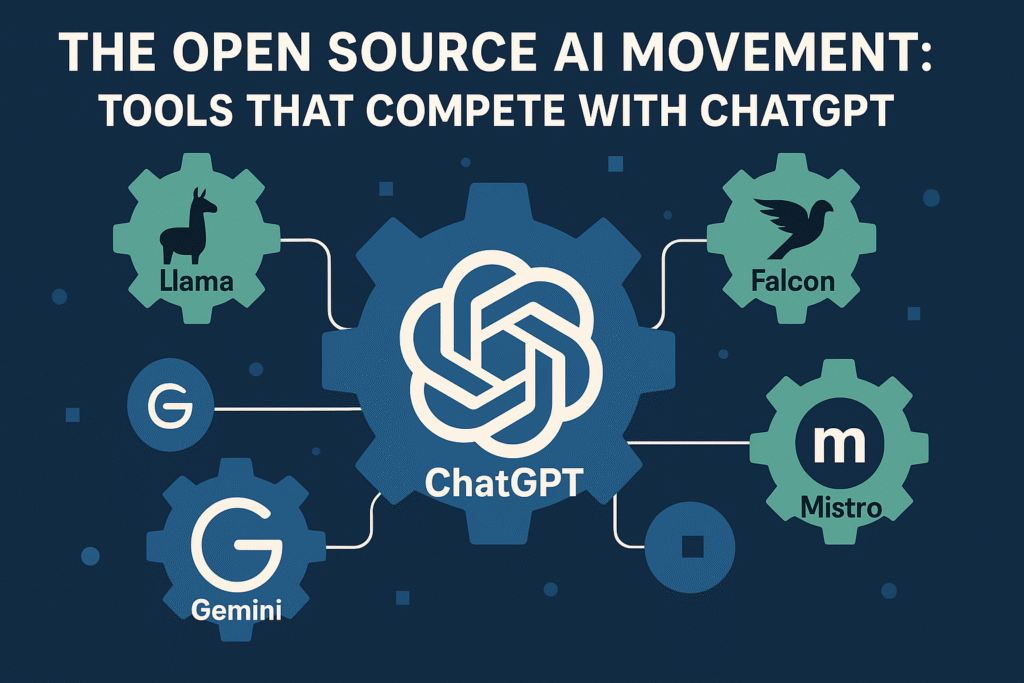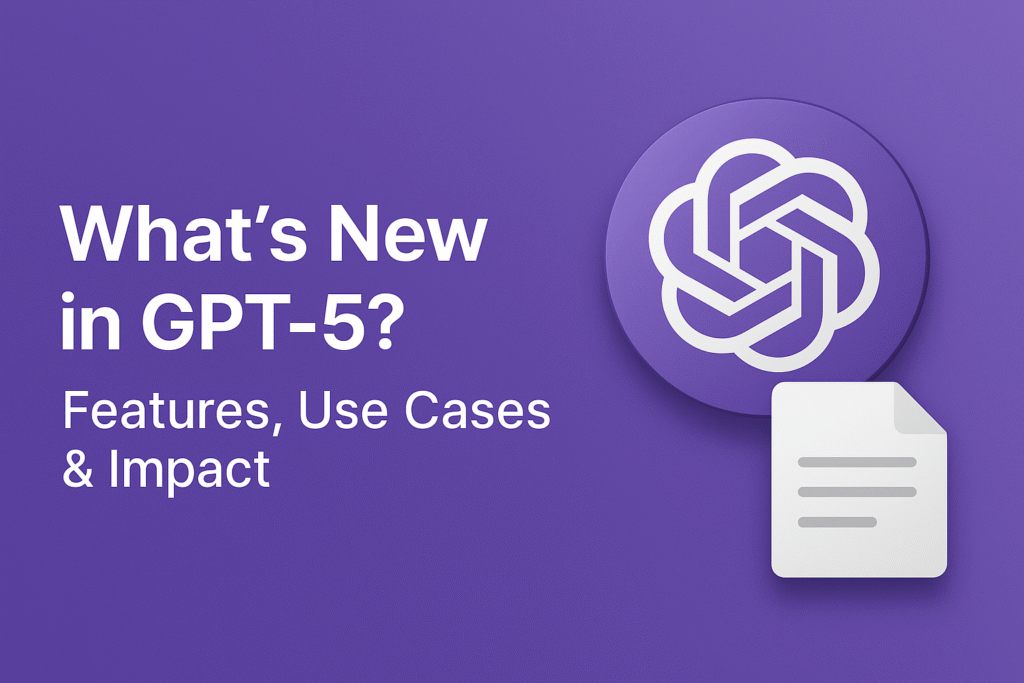🧩 The Open Source AI Movement: Tools That Compete With ChatGPT (2025 Guide)
Discover the top open source AI tools challenging ChatGPT in 2025. Learn how models like Mistral, LLaMA, and OpenChat are reshaping AI accessibility. Full list on AiBlogQuest.com.
🚀 Introduction: The Open Source AI Movement Is Exploding
ChatGPT may be the most well-known AI tool, but it’s not the only game in town. In 2025, a powerful open source AI movement is emerging — driven by developers, researchers, and companies that want more control, transparency, and affordability.
From Mistral to LLaMA and OpenChat, a new generation of tools that compete with ChatGPT are proving that high-performance AI doesn’t have to be closed or expensive.
In this article by AiBlogQuest.com, we highlight the top open source AI tools disrupting the industry — and how you can use them today.
🧠 Why Open Source AI Matters
-
✅ Transparency – Know exactly how your AI model works
-
✅ Customization – Fine-tune or modify models for your specific needs
-
✅ Cost Control – Avoid costly API calls or monthly subscriptions
-
✅ Data Privacy – Host models locally for total control
Open source AI = freedom + flexibility in a fast-evolving space.
🔥 Top 7 Tools That Compete With ChatGPT in 2025
1️⃣ Mistral 7B / Mixtral 8x7B
-
Creator: Mistral.ai (France)
-
Key Features: Small, fast, powerful; open weights
-
Why It Competes: Outperforms GPT-3.5 in many benchmarks
-
Use Cases: On-device AI apps, chatbots, coding tools
2️⃣ Meta LLaMA 3
-
Creator: Meta AI
-
Key Features: Multilingual, scalable, advanced reasoning
-
Why It Competes: Strong performance with full community support
-
Use Cases: AI research, education, language models
3️⃣ OpenChat
-
Creator: OpenChat Community (based on LLaMA)
-
Key Features: Dialogue-focused, instruction-tuned
-
Why It Competes: Lightweight ChatGPT alternative for local use
-
Use Cases: Customer support bots, internal AI agents
4️⃣ Phi-2 by Microsoft
-
Creator: Microsoft Research
-
Key Features: Small language model with big performance
-
Why It Competes: Optimized for reasoning and few-shot learning
-
Use Cases: Education, code generation, embedded AI
5️⃣ Nous Hermes
-
Creator: Nous Research
-
Key Features: Based on LLaMA2; fine-tuned for quality chat
-
Why It Competes: Fast-growing alternative for creative writing and Q&A
-
Use Cases: Blogging, customer support, general assistants
6️⃣ Ollama
-
Creator: Community project
-
Key Features: Easy one-line install for local LLMs
-
Why It Competes: Fast, simple, privacy-first
-
Use Cases: On-device AI assistants, offline use
7️⃣ GPT4All
-
Creator: Nomic AI
-
Key Features: Run ChatGPT-like models offline
-
Why It Competes: Best for laptops and low-power machines
-
Use Cases: Private chatbots, AI tutors, personal use
🔄 Key Differences vs ChatGPT
| Feature | ChatGPT (OpenAI) | Open Source AI Tools |
|---|---|---|
| Source Code | Closed | Open |
| Hosting | Cloud-based only | Local or cloud |
| Personalization | Limited | Full fine-tuning possible |
| Cost | Subscription/API | Free or self-hosted |
| Use Case Flexibility | Medium | Extremely flexible |
If you want more control, speed, or customization, open source tools are the way to go.
🔗 Useful Links – AiBlogQuest.com
🌐Resources
❓ FAQ – Frequently Asked Questions
Q1. Can open source AI tools really compete with ChatGPT?
Yes. Tools like Mixtral, LLaMA 3, and OpenChat offer impressive performance and customization.
Q2. Are open source models safe to use?
Yes, but always review licensing and test outputs. Hosting locally can improve security and privacy.
Q3. What’s the easiest way to try these tools?
Use Ollama or GPT4All for one-click local deployment.
Q4. Do open source models support multiple languages?
Many do — especially LLaMA 3, Nous Hermes, and Mistral.
Q5. Can I fine-tune these models for my own business?
Absolutely. Most support fine-tuning on your custom datasets or workflows.
🏷️ Tags
Tools That Compete With ChatGPT, Open Source AI, ChatGPT Alternatives, LLaMA 3, Mistral 7B, OpenChat, AiBlogQuest.com



